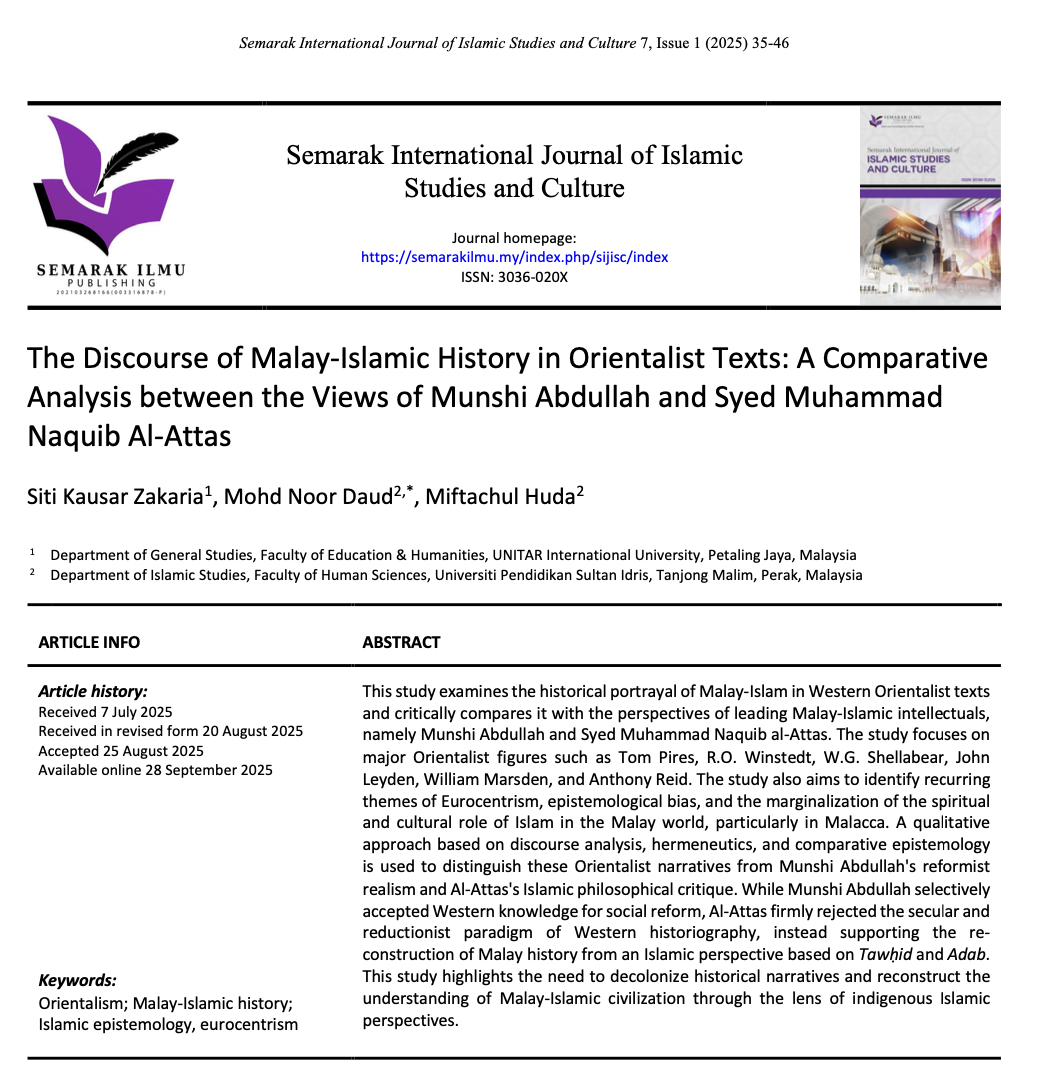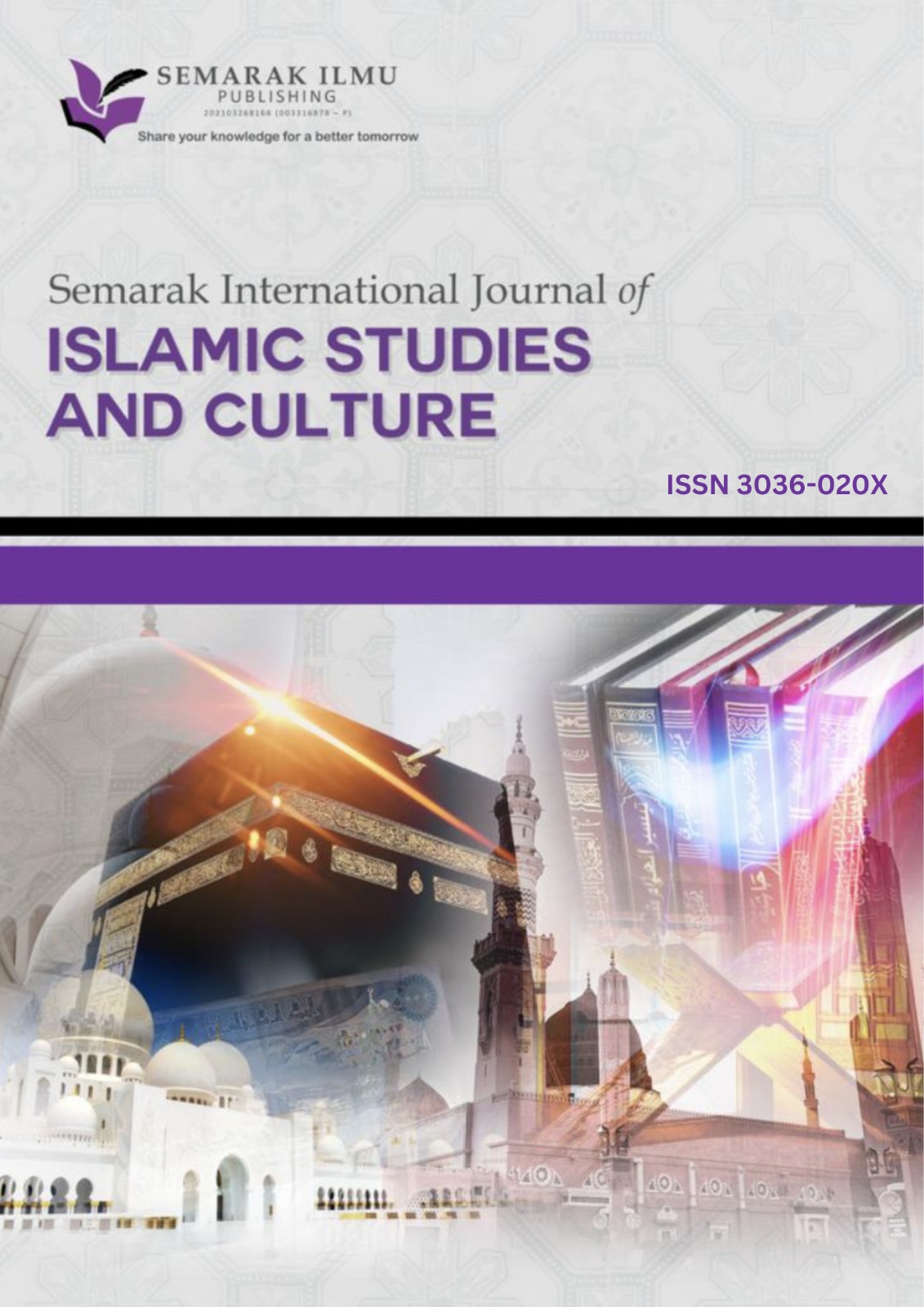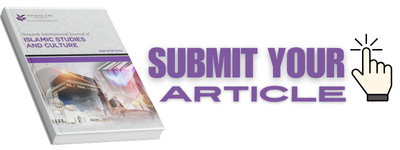The Discourse of Malay-Islamic History in Orientalist Texts: A Comparative Analysis between the Views of Munshi Abdullah and Syed Muhammad Naquib Al-Attas
Keywords:
Orientalism, Malay-Islamic history, Islamic epistemology, eurocentrismAbstract
This study examines the historical portrayal of Malay-Islam in Western Orientalist texts and critically compares it with the perspectives of leading Malay-Islamic intellectuals, namely Munshi Abdullah and Syed Muhammad Naquib al-Attas. The study focuses on major Orientalist figures such as Tom Pires, R.O. Winstedt, W.G. Shellabear, John Leyden, William Marsden, and Anthony Reid. The study also aims to identify recurring themes of Eurocentrism, epistemological bias, and the marginalization of the spiritual and cultural role of Islam in the Malay world, particularly in Malacca. A qualitative approach based on discourse analysis, hermeneutics, and comparative epistemology is used to distinguish these Orientalist narratives from Munshi Abdullah's reformist realism and Al-Attas's Islamic philosophical critique. While Munshi Abdullah selectively accepted Western knowledge for social reform, Al-Attas firmly rejected the secular and reductionist paradigm of Western historiography, instead supporting the re-construction of Malay history from an Islamic perspective based on Tawḥid and Adab. This study highlights the need to decolonize historical narratives and reconstruct the understanding of Malay-Islamic civilization through the lens of indigenous Islamic perspectives.










